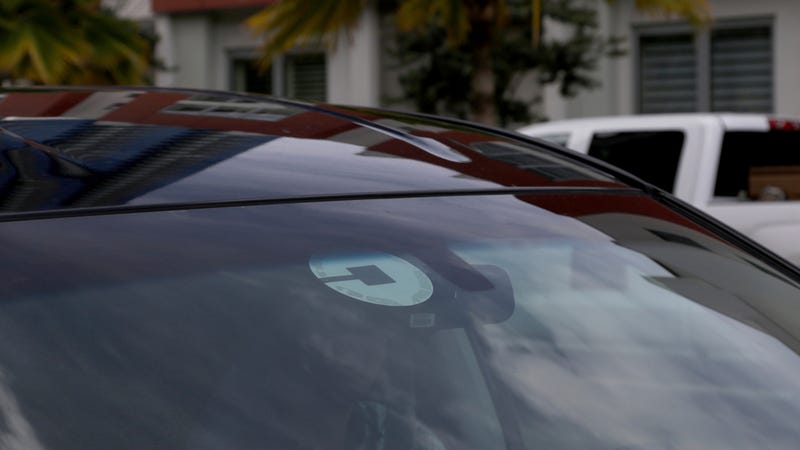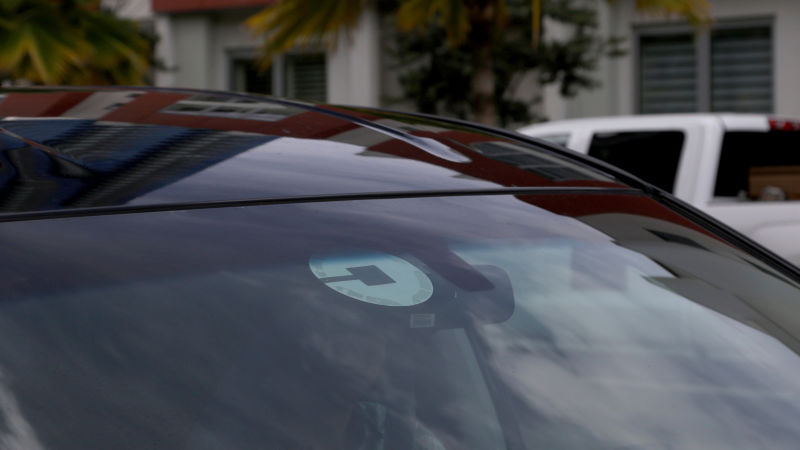
Uber was once a modest company with modest goals: unleash the power of the free market in a heavily-regulated industry to provide on-demand, convenient rides while allowing folks with cars to make extra cash driving people around. It didn’t take long for that modest goal to morph into much more, including advertisements boasting of $90,000 annual incomes driving for Uber, a false advertising claim that cost Uber $20 million in fines.
It also didn’t take long for the poster child of the “sharing economy”—a loosely defined term that, in its most charitable interpretation, means allocating existing labor and resources more efficiently—to adopt a model where the only thing one was “sharing” was a portion of their earnings.
When Uber launched a subprime car-leasing program in 2014, it allowed people without cars to lease one, so long as they drove for Uber. The program, a financial and ethical disaster, was shuttered in 2017, with the existing loans sold off to another start-up called Fair in early 2018.
As TechCrunch reported at the time, the deal made Fair, an app-based auto leasing service, Uber’s exclusive partner for auto loans of 30 days or more. As it happens, in December Fair raised $385 million from Softbank, which happens to be Uber’s largest shareholder.
Advertisement
This brings us to today’s announcement, reported by Bloomberg, that Uber’s partnership with Fair, previously only available in California, is going nationwide.
Basically, the pitch is this: if a driver completes 70 Uber trips per week, the driver gets to use the car essentially for free after a credit check and “linking” a bank or credit card account to Fair. The arrangement includes “insurance, unlimited miles, roadside assistance, options to renew week-to-week, and routine maintenance,” which according to the website’s FAQ includes “oil and filter changes, tire rotations and multipoint inspections.”
From Bloomberg:
Since January, Uber has partnered in California with flexible car-leasing startup Fair to supply vehicles to drivers for a $185 refundable security deposit. Drivers can then earn that much in credits from Uber if they complete 70 trips a week, which can effectively offset payments owed to Fair.
Advertisement
Getting Fair to cover those costs sounds like a cumbersome process with potential administrative nightmares as it scales:
If you’re a rideshare customer, you may take the vehicle to most national, licensed maintenance facilities for service on your vehicle.
Upon arrival and before checkout, call our rideshare maintenance administrator at (800) 323-1483 for approval and for payment.
Something to note, our maintenance administrator will make direct payment only, as they cannot reimburse.
Meanwhile, all other maintenance costs besides the cheapest ones are passed onto the driver, a potentially huge caveat considering Fair’s fleet is used cars. I’d add that doing trips to “effectively offset payments owed to Fair” on top of non-routine maintenance costs that may arise makes me wonder just how viable this model is for anything other than a short-term stint.
Advertisement
Fair did not respond to a list of questions from Jalopnik. We’ll update the post if we hear back.
For its part, Uber is billing this as a way to get drivers without much cash into a car quickly and easily (only $185 security deposit and another $185 down payment for the first week) and without the cumbersome financing structure. In terms of expanding its potential labor pool, this is unquestionably an improvement over the subprime loan program which bound drivers into multi-year, high-interest loans they couldn’t afford, which worked out poorly both for Uber (which lost a reported $9,000 per car on the program) and the drivers.
A few experienced drivers I ran this program by said, based on the limited information available, it may not be so bad for short-term drivers; $30-$35 per day is a reasonable cost. But the math will probably only work for people driving full-time but only for a brief period who are unlikely to encounter expensive maintenance problems. How many people fit that bill is questionable.
Advertisement
The larger picture, though, is the uncanny degree to which this resembles the very industry Uber disrupted. This is pretty much exactly how the taxi industry has operated for decades: someone owns the taxis, covers the long-term costs themselves (notably, taxi fleet owners don’t merely cover oil changes and whatnot), and rents the cars to drivers on a per-day rate. The sign that taxi drivers had “made it” would be that they could buy a taxi of their own and therefore keep all their day’s wages.
The fundamental problem with this program—and Uber, Lyft, and the “sharing economy” in general—is its drivers can never get to that place. Even if Fair is a wonderful program that works perfectly, drivers will always be sharing a sizable chunk of their wages with the app that mediates their services, beholden to the whims of programmers at a multi-billion dollar company who set the prices they must charge, and the cut Uber gets to keep.
Fair, whatever its role in this economy may prove to be, is just another bit player making sure drivers never truly control their own business.













